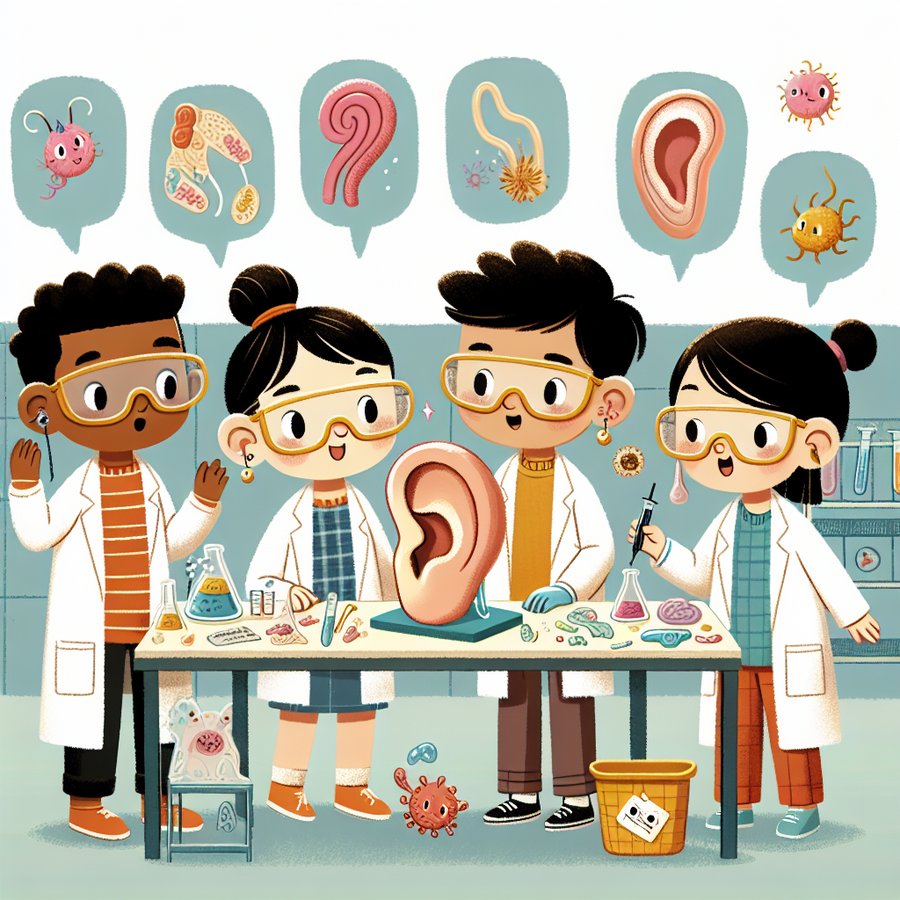Ear infections represent a common health challenge for young children, with numerous babies experiencing at least one episode before they turn three. Understanding ear infections, their symptoms, causes, and treatment options, is crucial for new parents seeking to ensure the well-being of their little ones. This article delves into the intricacies of ear infections, providing a comprehensive guide to help you navigate this common yet troubling condition.
What is an Ear Infection?
An ear infection, medically known as otitis media, occurs when a bacterial or viral infection affects the middle ear, the air-filled space behind the eardrum that contains the tiny vibrating bones of the ear. Children are more susceptible to ear infections than adults due to the size and shape of their eustachian tubes and their developing immune systems.
Ear infections can be acute or chronic and may occur in one or both ears. While acute ear infections are painful but short in duration, chronic ear infections can recur many times and may cause lasting damage to the ear if not properly treated.
Signs and Symptoms of Ear Infections in Babies
Recognizing the signs and symptoms of an ear infection in your baby can be challenging since they cannot express what they are feeling. However, there are several indicators that might suggest your baby is suffering from an ear infection. These include:
- Unusual fussiness and crying
- Difficulty sleeping
- Tugging or pulling at one or both ears
- Fever, especially in babies 6 months and older
- Fluid draining from the ear
- Difficulty hearing or responding to sounds
- Loss of balance
- A noticeable decrease in appetite
If you notice any of these symptoms in your baby, it’s important to consult a healthcare provider for a proper diagnosis and treatment plan.
How to Prevent Ear Infections
While it may not be possible to prevent all ear infections, there are several measures you can take to reduce your baby’s risk. These include:
- Ensuring your baby is up to date on all vaccinations, including the flu shot and the pneumococcal vaccine, which can help prevent ear infections.
- Practicing good hygiene, such as washing hands regularly, to reduce the spread of germs.
- Avoiding exposure to tobacco smoke, as it can increase the risk of ear infections.
- Breastfeeding, if possible, for at least six months. Breastfed babies have a lower risk of ear infections.
- Keeping your baby upright while feeding to prevent milk from entering the eustachian tubes, which can lead to infections.
Implementing these strategies can significantly decrease the likelihood of your baby developing an ear infection.
Treatment Options for Ear Infections
Treatment for ear infections typically depends on the age of the child, the severity of the infection, and whether the infection is acute or chronic. In many cases, mild ear infections may resolve on their own without the need for antibiotics. However, if your baby is under 6 months old or if symptoms are severe or do not improve within 48-72 hours, your healthcare provider may prescribe antibiotics.
In addition to medical treatment, there are several ways to alleviate your baby’s discomfort during an ear infection. These include:
- Using over-the-counter pain relievers, such as acetaminophen or ibuprofen, as directed by your healthcare provider.
- Applying a warm compress to the affected ear.
- Ensuring your baby gets plenty of rest.
For chronic ear infections or those causing hearing problems, your healthcare provider may recommend further interventions, such as tympanostomy tubes (ear tubes) to help drain fluid and prevent future infections.
Understanding ear infections and their impact on babies is essential for new parents. By recognizing the signs and symptoms, taking steps to prevent infections, and knowing the treatment options, you can help ensure your baby’s health and comfort. Remember, consulting with a healthcare provider is always the best course of action if you suspect your child has an ear infection.
For more information on related topics, be sure to visit our articles on Immunizations, Breastfeeding, and Tympanostomy (Ear Tubes).













